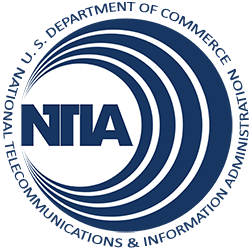Broadband and the Latino Community: Let's Keep the Momentum Going!
Yesterday I was happy to participate in a panel discussion about broadband at the National Association of Latino Elected and Appointed Officials (NALEO) annual conference in San Antonio. NALEO members recognize that broadband Internet is one of the tools necessary to help their communities thrive in today's economy. In fact, I think that any conference focused on building stronger communities should include a discussion of broadband - it's a critical ingredient for job creation, economic growth, and improving education, health care, and public safety.
I talked about challenges and opportunities. NTIA's data show that although 90-95 percent of Americans live in areas with access to broadband, only 68 percent of households subscribe to the service. In fact, more than 28 percent of Americans do not use the Internet in any location, which means they are cut off from countless educational and job opportunities.
The issue is even greater for Latinos. While the Internet subscribership rate for Hispanics increased by five percentage points last year, it is still only 45 percent. Even after adjusting for socioeconomic factors like income and education, Latinos still significantly lag the national rate in broadband adoption.
Our research shows that those who lack broadband at home most commonly cite lack of interest or need as the primary reason. Interestingly, while those are certainly factors for Hispanic non-adopters, they most often cite affordability as the primary reason. So there is no single solution to bridging the digital divide.
But the good news is that NTIA, and others in the Obama administration, are working on many fronts to expand broadband access and adoption, including efforts targeted to Hispanics and other communities where broadband is underutilized, such as rural Americans, seniors, people with disabilities, and other minorities.
For example, NTIA's broadband grants program - a $4 billion Recovery Act investment in high-speed Internet infrastructure, public computer centers, and broadband adoption initiatives - is bringing more Latinos online and providing training in the skills needed for today's jobs. I also asked attendees to help us build awareness of www.DigitalLiteracy.gov, a website we launched recently to increase computer and Internet skills in America. The site contains a range of tools for teaching and learning digital literacy, and it provides a central location for practitioners to share materials and best practices. Anyone can suggest additional resources for the website, and I encouraged more content targeted to the Hispanic community.
I appreciate NALEO's focus on broadband. To everyone working on empowering Latino communities: let's keep this momentum going!
